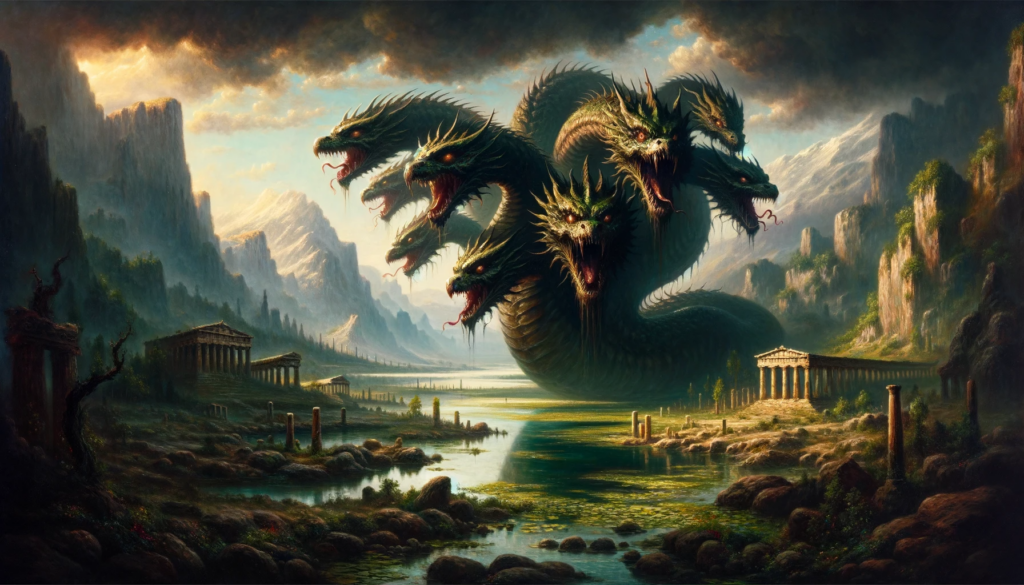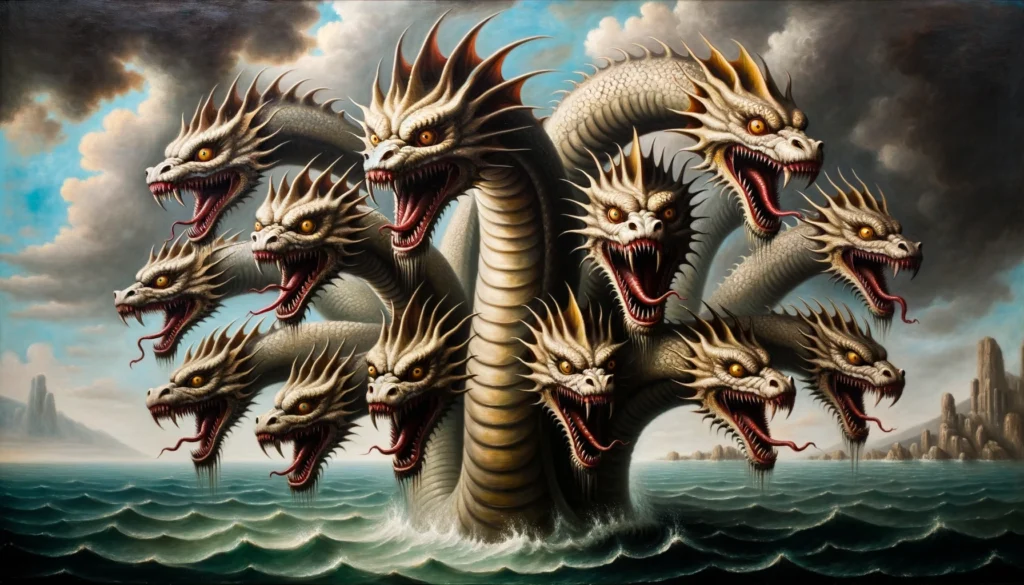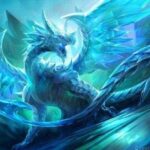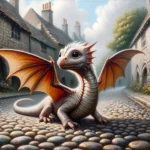Lernaean Hydra – an Introduction
In the rich tapestry of Greek mythology, the Lernaean Hydra stands as a legendary creature that has captured the imagination of countless generations. This fearsome serpent-like monster, with its regenerative powers and multiple heads, is a symbol of both formidable challenge and indomitable resilience. Let us delve into the mythical depths of the Lernaean Hydra and explore the significance it holds in ancient Greek culture and beyond.
Origins of the Lernaean Hydra
The Hydra’s tale is closely associated with the Twelve Labours of Heracles (Hercules in Roman mythology). It is said to have been the offspring of Typhon and Echidna, two of the most monstrous beings in Greek mythology. The creature resided in the swamps near the ancient city of Lerna in the Argolid region of Greece. The Hydra’s lair, known as the Lernaean Lake, was its domain, and it terrorised the nearby lands.
The Many Heads
One of the most distinctive features of the Hydra was its multiple heads, typically depicted as nine, although the number varied in different accounts. According to myth, cutting off one of these heads would result in the immediate growth of two more in its place, making it a nearly unbeatable adversary. This regenerative ability added to the Hydra’s reputation as an insurmountable challenge.
Heracles’ Epic Battle
The second of Heracles’ Twelve Labours was to slay the Lernaean Hydra. Armed with a sword and his nephew Iolaus’ assistance, Heracles confronted the beast. The battle was a fierce and protracted struggle. As Heracles decapitated the Hydra’s heads, Iolaus cauterised the neck stumps with fire, preventing them from regenerating. Heracles ultimately triumphed, defeating the Hydra and dipping his arrows in its toxic blood, which later played a role in the demise of other foes.

Symbolism and Themes
The Lernaean Hydra carries several symbolic and thematic connotations that resonate throughout history and literature:
- Resilience: The Hydra embodies the concept of resilience and the ability to face seemingly insurmountable challenges. Just as Heracles found a way to defeat it, humans are inspired to overcome adversity and obstacles in their own lives.
- Complexity: The multifaceted nature of the Hydra’s heads reflects the complexity of life’s problems. Confronting these challenges often requires multifaceted solutions and strategies.
- Regeneration: The Hydra’s regenerative ability symbolises the recurring nature of certain issues. Some problems, like the heads of the Hydra, seem to reappear despite our efforts to eliminate them.
- Heroism: Heracles’ battle with the Hydra exemplifies the heroic archetype. It serves as a reminder that heroes are not without their trials, and their victories often come after great struggle and sacrifice.
Legacy and Influence
The Lernaean Hydra’s influence extends far beyond Greek mythology. Its presence can be felt in various aspects of modern culture, from literature and art to science and technology. The term “hydra” has been used in biology to describe organisms that can regenerate lost body parts, paying homage to the creature’s regenerative abilities.
Lernaean Hydra – a Conclusion
The Lernaean Hydra is more than just a mythical monster; it is a symbol of the enduring human spirit in the face of adversity. Its story reminds us that, like Heracles, we can confront and overcome even the most daunting challenges in our lives. The Hydra’s multi-headed nature and regenerative powers continue to inspire and captivate us, serving as a timeless emblem of resilience and heroism in the face of adversity.
For more great Dragon content please subscribe to our YouTube Channel or follow the Everything Dragon Instagram




